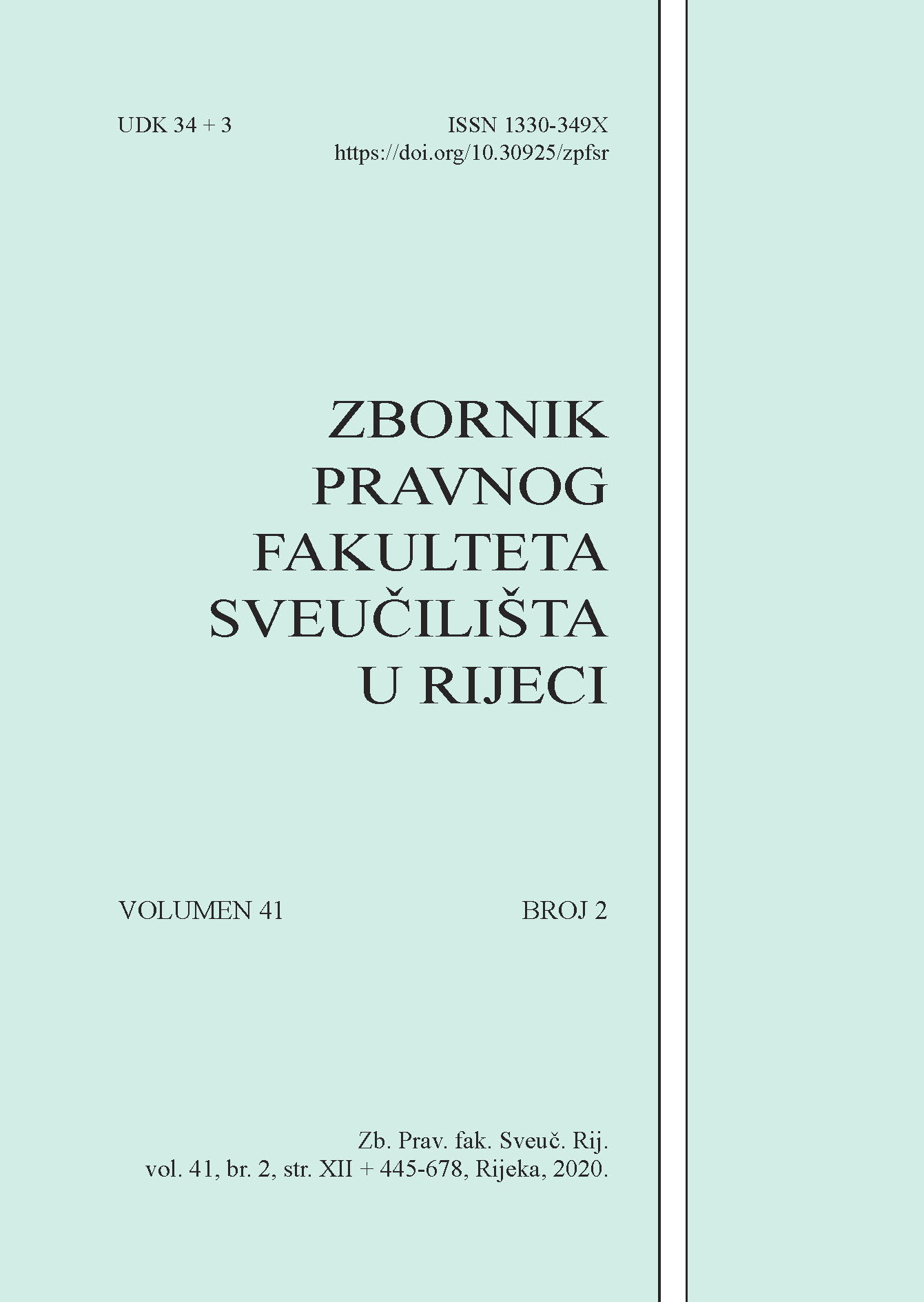COURT DECISION CRITERIA ON CORRECTIONAL MEASURES
DOI:
https://doi.org/10.30925/zpfsr.41.2.1Keywords:
juveniles; criminal offenses; criteria; correctional measures; reportsAbstract
Starting point of this paper is the contemporary philosophy of the treatment of young offenders, which recognizes that the most appropriate and effective intervention is one that relies on their specific needs and potentials. In order for the juvenile court to be able to make the best decision on the correctional measure, it needs relevant
information.
The paper analyzes the reports of social welfare centres in terms of their informative nature as well as the overlap of the correctional measures proposals given by parties to court proceedings with court decisions. As expected, the reports are unstructured, uneven and incomplete. Of the 149 expected data, only a quarter was
delivered to the courts on average. Nevertheless, the overlap between the proposals of correctional measures by different parties and the court's decisions is very high.
The purpose of this paper was to offer a sustainable model that will result in quality data collected, based on the results. The model is described in the paper.
Additional Files
Published
How to Cite
Issue
Section
License
Collected Papers is an open access journal. Journal does not charge article processing charges (APC) to authors. It is licensed under CC BY-NC licence 4.0.
Collected Papers of the Law Faculty of the University of Rijeka" is an Open Access journal. Users are allowed to read, download, copy, redistribute, print, search and link to material, and alter, transform, or build upon the material, or use them for any other lawful purpose as long as they attribute the source in an appropriate manner according to the CC BY licence.
The papers published in "Collected Papers of the Law Faculty of the University of Rijeka" can be deposited and self-archived in the institutional and thematic repositories providing the link to the journal's web pages and HRČAK.
Upon acceptance of the manuscript for publication by this journal, the author can publish same manuscript in other journals only with the permission of the Editorial Board (secondary publication). A repeated publication should contain a notice as to where the manuscript was originally published.



